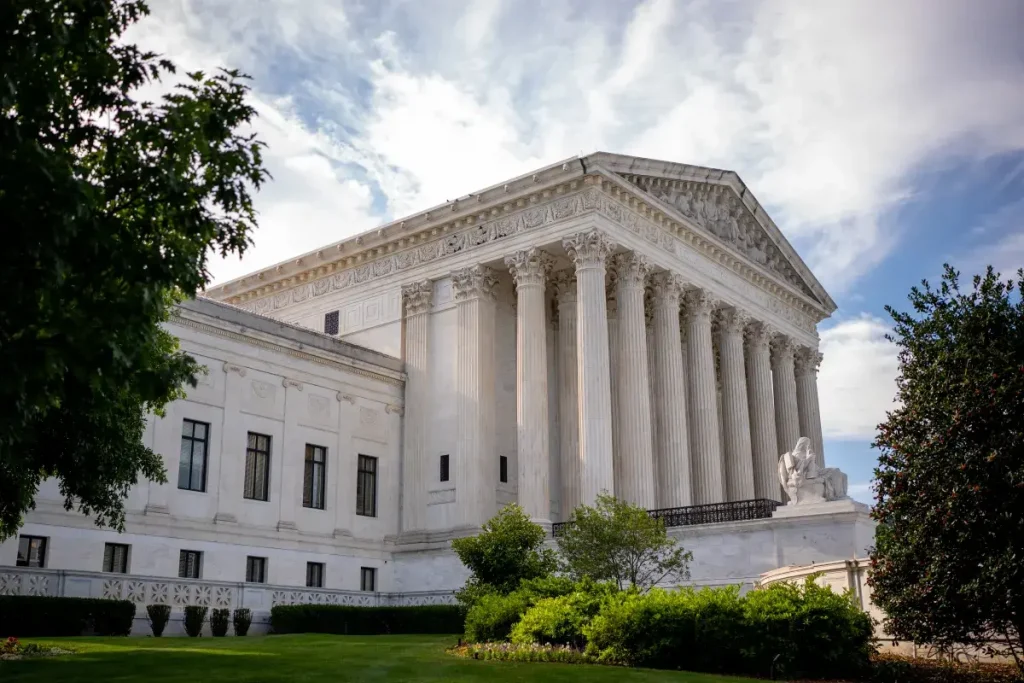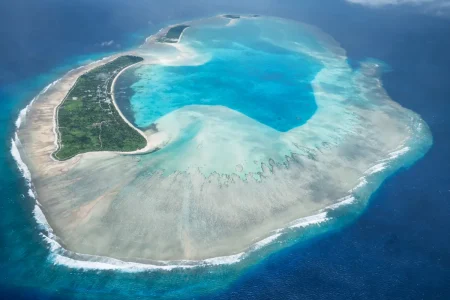Supreme Court Skeptical of Private Prison Contractor’s Immunity Claims in Detainee Wage Dispute
The U.S. Supreme Court recently heard arguments in a case that highlights the intersection of immigration detention, private contracting, and labor rights. At the heart of the case—GEO Group, Inc. v. Menocal—lies a fundamental question about accountability: Can private companies performing government functions shield themselves from lawsuits by claiming the same immunity that protects the federal government? The justices appeared doubtful of GEO Group’s attempt to immediately appeal a lower court’s ruling in a dispute concerning $1-a-day wages paid to immigrant detainees at its Aurora, Colorado detention facility. This case has far-reaching implications for how we treat vulnerable populations in detention and the degree to which private contractors can be held accountable for their actions while performing government work.
The case originated in 2014 when Alejandro Menocal and other former detainees filed a class-action lawsuit against GEO Group, alleging forced labor and unjust enrichment. Their claims center on GEO’s “voluntary work program,” through which detainees performed cleaning and other tasks for as little as $1 per day—a rate that hasn’t changed in decades despite inflation and rising costs of living. While ICE standards do establish this $1 per day minimum, the detainees argue that the work was not truly voluntary and violated the Trafficking Victims Protection Act. A district court ruled in 2022 that GEO was not entitled to immunity because ICE had not specifically instructed the company to pay detainees that particular wage or to compel their labor. This ruling allowed the lawsuit to proceed, prompting GEO to seek an immediate appeal under the collateral-order doctrine.
During oral arguments, the justices focused not on whether the work program violated labor laws, but on the procedural question of whether GEO can claim governmental immunity and appeal before the case reaches final judgment. GEO’s attorney, Dominic Draye, argued that contractors following government instructions should be immune from suit because “they are doing the sovereign’s work” under the Yearsley doctrine, which has historically provided certain protections to government contractors. However, this position met significant skepticism from the bench. Justice Clarence Thomas pointedly asked Draye to “show us the language in Yearsley that indicates this immunity from suit,” while Justice Ketanji Brown Jackson questioned whether Yearsley should be “better understood as a defense than an immunity.” The distinction is crucial because a defense can be raised at trial, while immunity would potentially shield GEO from having to litigate the case at all.
The human dimension of this case cannot be overlooked. Behind the legal technicalities lie real people who were detained while awaiting immigration proceedings—not serving criminal sentences—yet were allegedly compelled to work for what amounts to pocket change. Amy Fischer, Amnesty International USA’s director for refugee and migrant rights, called the practice “both exploitative and degrading,” noting that it “has no place in a society that claims to value human rights and justice.” The contrast between the detainees’ compensation and GEO Group’s financial position is stark: in 2024, the company reported total revenues of $2.42 billion and a net income of $31.9 million. This disparity raises troubling questions about profit incentives in the privatized detention system and whether they may conflict with humanitarian treatment of detainees.
The Supreme Court’s ultimate decision will have consequences beyond just this case. If GEO succeeds in claiming immunity, it could limit the ability of individuals to hold government contractors accountable for potential abuses. Such an outcome would raise broader concerns about public oversight of privately run government programs, particularly in contexts where vulnerable populations are involved. Justice Amy Coney Barrett seemed to capture the Court’s skepticism when she noted that “GEO’s argument boils down to the claim that Yearsley is an immunity from suit for contractors who can’t show that history and policy warrant immunity. That doesn’t make sense as a matter of common sense.” Her comment suggests the Court may be reluctant to extend government immunity to private contractors without clear legal foundation.
As we await the Court’s ruling later this term, this case serves as a reminder of how legal doctrines developed for different contexts are now being applied to the relatively new phenomenon of widespread privatization in immigration detention. The question of whether private contractors should enjoy the same immunities as the government when performing public functions touches on fundamental issues of accountability and justice. For the former detainees who brought this case, the stakes are deeply personal—recognition of their dignity and the value of their labor. For the broader public, the case raises essential questions about transparency, oversight, and the proper relationship between profit-seeking entities and vulnerable populations in government custody. Whatever the outcome, GEO v. Menocal highlights the evolving challenges of ensuring justice and accountability in an era of increasing privatization of traditional government functions.















